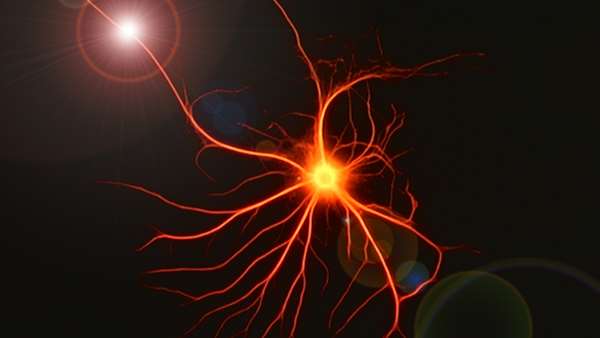Discovery of the cell fate switch from neurons to astrocytes in the developing brain
During mammalian brain development, neural precursor cells first generate neurons and later astrocytes. This cell fate change is a key process generating proper numbers of neurons and astrocytes. Here we discovered that FGF regulates the cell fate switch from neurons to astrocytes in the developing cerebral cortex using mice. FGF is a critical extracellular regulator of the cell fate switch, necessary and sufficient, in the mammalian cerebral cortex.
During mammalian brain development, neural precursor cells first generate neurons and later astrocytes. This cell fate change is a key process generating proper numbers of neurons and astrocytes. Here we discovered that FGF regulates the cell fate switch from neurons to astrocytes in the developing cerebral cortex using mice. FGF is a critical extracellular regulator of the cell fate switch, necessary and sufficient, in the mammalian cerebral cortex.
Neurons and astrocytes are prominent cell types in the cerebral cortex. Neurons are the primary information processing cells in the brain, whereas astrocytes support and modulate their functions. For sound functioning of the brain, it is crucial that proper numbers of neurons and astrocytes are generated during fetal brain development. The brain could not function correctly if only neurons or astrocytes were generated.
During fetal brain development, both neurons and astrocytes are generated from neural stem cells, which give rise to almost all cells in the cerebral cortex (Figure 1). One of the characteristics of this developmental process is that neural stem cells first generate neurons and, after that, start generating astrocytes (Figure 1). The "switch" to change the cell differentiation fate of neural stem cells from neurons to astrocytes has attracted much attention, since the cell fate switch is key to the generation of proper numbers of neurons and astrocytes. However, it remained largely unknown.
The research group at Kanazawa University shows that the switch determining the fate of two types of cells in the cerebral cortex generated from neural stem cells is based on the FGF signaling pathway (Figure 1). More specifically, it was found that enhancement of FGF signaling by introducing FGF in the cerebral cortex caused cells destined to become neurons to be differentiated into astrocytes (Figures 2, 3). On the other hand, suppression of FGF signaling caused cells destined to become astrocytes to be differentiated into neurons (Figure 3). The present study has thus elucidated the mechanism responsible for determining the correct numbers of neurons and astrocytes during development of the fetal brain.
The research group has discovered the switch that determines the fate of cells in the developing cerebral cortex generated from neural stem cells, i.e. neurons and astrocytes; this switch involves the FGF signaling pathway. This may be relevant for understanding the pathology of brain disorders caused by unbalanced numbers of neurons and astrocytes by determining which disorders are based on abnormal FGF signaling.
Reference:https://www.jneurosci.org/lookup/doi/10.1523/JNEUROSCI.2195-18.2019





ارسال به دوستان